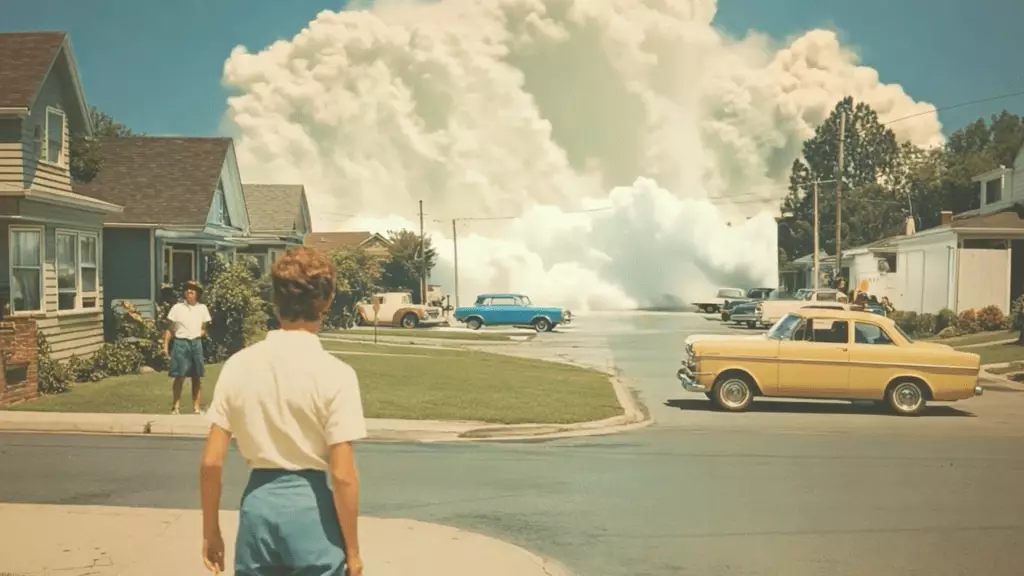The third annual AI Film Festival, held at New York’s prestigious Lincoln Center, turned out to be not just an event but a testament to the growing presence of artificial intelligence in the creative arts. This year, the short film “Total Pixel Space,” crafted by Jacob Adler, took home the top honors amidst a breathtaking array of entries that claimed the spotlight. This occasion served as a litmus test for the cultural landscape reshaped by technology, one where the lines separating human creativity from algorithm-generated output blur dangerously.
Runway, the firm behind this transformative initiative, is currently valued at over $3 billion and has become emblematic of AI’s burgeoning impact on various creative industries. It is no small feat for a relatively new player to dominate the scene, with CEO Cristóbal Valenzuela proudly reporting an extraordinary leap in submissions—from a humble 300 in 2022 to a staggering 6,000 this year. The sheer volume reflects a sea change in how artists are approaching storytelling, invoking a climate rife with potential yet fraught with unease.
Art or Algorithm? The Existential Dilemma
While the festival applaudably showcases creativity driven by AI, it begs the question: what does it mean for the future of art? Valenzuela himself indicated that we are at a pivotal moment in technological history—a moment when AI is not just a tool but a disruptor that is “beginning to alter the fabric of culture.” Such sweeping claims warrant skepticism. As filmmakers lean increasingly on data-driven methodologies, are they placing their faith in the unpredictable whims of algorithms over the organic flow of human creativity?
This existential crisis is articulated in the remarks of Steven Ellison, aka Flying Lotus, whose animated presence at the festival resonated with young filmmakers yearning to defy traditional boundaries. Ellison’s “f-k around and find out” approach emphasizes a playful, exploratory method where narratives can evolve organically. But therein lies the quandary: could this reckless experimentation foster degradation in artistic integrity, lowering storytelling to mere algorithmic fun rather than meaningful engagement with audiences?
The Dichotomy of Freedom and Control
AI’s influence on film brings with it a paradox. On one hand, it democratizes the creative process by enabling artists to explore unconventional narratives and techniques without the strictures of traditional storytelling. On the other hand, it risks creating a homogenized output where authenticity takes backseat in favor of what is marketable—content that matches a derived template of ‘successful’ narratives based on patterns recognized through data.
Adler’s “Total Pixel Space” and other finalists showcase this dichotomy. The films emanate a dreamlike quality, often deriving their charm from random, serendipitous elements infused by algorithms. However, as these films dazzle with their visual splendor, one can’t help but wonder if this style is leading to a dilution of narrative depth. Is the absence of a strong, cohesive story becoming an acceptable trade-off for artistic visual achievements made possible by AI?
Case Studies in AI Integration
Take Andrew Salter’s runner-up film “Jailbird,” which cleverly marries documentary storytelling with AI embellishments for an impactful narrative on an initiative pairing chickens with prisoners. Here, AI serves as an auxiliary tool rather than a primary storyteller, preserving the integrity and emotional resonance of the human experience. This case starkly contrasts with others birthed purely from algorithmic inspiration, highlighting the necessity to balance technological benefits and human emotional investment.
As creators and audiences navigate this brave new world, the essential question remains: can AI truly enhance the artistry involved in filmmaking, or is it simply shackling us to a digital playground where profundity takes a back seat to spectacle? The answers are complex and nuanced, reflecting broader societal anxieties as we grapple with the capabilities and limitations of artificial intelligence in the arts.
The debate surrounding AI in filmmaking embodies not merely the fears of displaced creatives or diminished artistry but presents a fundamental reassessment of human value in creative endeavors. We live in a moment laden with promise—where art can transcend boundaries—but it is imperative to tread cautiously, ensuring that our humanity and authenticity remain intact amidst the exhilarating chaos.



Leave a Reply